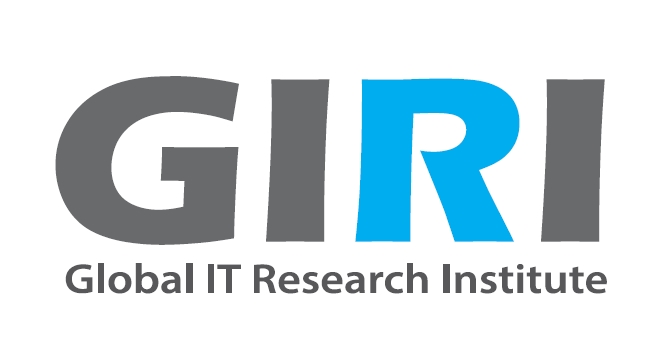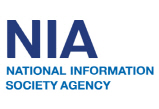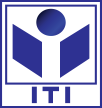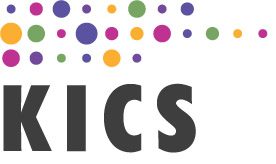Now 653 visitors
Today:988 Yesterday:962
Total: 2853
410S 104P 92R
2026-01-23, Week 4 |
| Member Login |
| Welcome Message |
| Statistics |
| Committee |
| TACT Journal Homepage |
| Call for Paper |
| Paper Submission |
| Find My Paper |
| Author Homepage |
| Paper Procedure |
| FAQ |
| Registration / Invoice |
| Paper Archives |
| Outstanding Papers |
| Author Homepage |
| - Paper Procedure |
| - Journal Procedure |
| - Presentation Tips |
|
| Proceedings |
| Program with Papers |
| Plenary Session |
| Tutorial Session |
|
| Presentation Platform |
| Hotel & Travel Info |
| About Korea |
| Accommodation |
| Transportation |
| VISA |
| Other Infomation |
|
| Photo Gallery |
| Scheduler Login |
| Seminar |
| Archives Login |
|
| Sponsors |

|

|

|

|

|

|

|

|

|

|

|

|
|
|
|
|
|
2012
 |
Title : Broadband Power Line Communications for Smart Grid ( Presentation PPT ) |
|
Time : 15:00 ~ 18:00 |
|
Speaker : Prof. Sangho Choe, The Catholic University of Korea
Sangho Choe received the B.Sc. and the M.Sc. degree in electronics engineering from Hanyang University, Seoul, Korea, in 1982 and 1984, respectively, and the Ph.D. degree in electrical engineering from Texas A&M University, College Station, Texas, in 2001. He worked as a senior engineer at Agency for Defense Development (ADD), Taejon, Korea, from 1984 to 1994 and at Electronics Telecommunications Research Institute (ETRI), Taejon, Korea, from 1994 to 1996. During 2001 to 2002, he joined as a principal engineer at RadioCosm Inc., a silicon-valley venture company, Mountain View, CA, USA. Since March 2003, he has joined to Department of Information, Communications, and Electronics, the Catholic University of Korea, Bucheon, Korea, where he is currently an associate professor. Over the years, he has served on the technical program committee of more than 50 international conferences in the communications area. He is a member of IEEE and IEICE and a life-long member of Korean Information and Communications Society. His current research interests are in the fields of cognitive radio, tactical ad-hoc networks, and smart grid ICT technology.
Abstract : Smart Grid (SG) is a future low-CO2 green-energy power grid network (PGN). This tutorial introduces broadband power line communications (BPLC) for SG backbone network. BPLC is low cost due to no additional infrastructure, ubiquitous due to its availability anywhere electricity is provided, and highly accessible due to no extra LAN cable or WiFi router. This tutorial describes overall top-down pictures regarding SG BPLC that include its background & motivation, network architectures, channel characteristics, PHY/MAC design issues, standard activities, and future services. Especially, this tutorial stresses recent SG BPLC PHY/MAC design issues (or challenges) such as wideband transmission schemes, diversity techniques like MIMO, channel encoding / signal mapping, channel estimation, synchronization, resource allocation, and so on.
|
 |
Title : Future Internet – OpenFlow as Software Defined Network ( Presentation PPT ) |
|
Time : 15:00 ~ 18:00 |
|
Speaker : Prof. Thomas Byeong-Nam Yoon, Kyunggi University, Korea
Thomas ByeongNam YOON is currently professor in faculty of Computer Science, Kyonggi University since 2010, Korea. He obtained his BSc from Hanyang University, MSc from Chungju University, and PhD from Chungnam National University, Korea. He has been accredited as a Computer System Specialist by UNIVAC, USA 1975, a Telecom System Specialist by ALCATEL, Belgium 1979, a Telecom System Designer by LME, Sweden 1983. He was a Communication System Development Project Manager of TDX/CDMA, ISDN, Intelligent Network, HITEL/PC, ATM, MPLS/Router in ETRI 1982 – 1999. He was a National Grand Project Manager of the Information Super Highway, eGovernment, SME Information, Internet Switching Center, eSignature Center, National Back-up Center in NIA 1999 – 2009, Korea.
Abstract : Evolving smart services and social networks are rapidly transforming societies and economies. The Global Environment for Network Innovations (GENI), a project sponsored by the National Science Foundation, is open and broadly inclusive, providing collaborative and exploratory environments for academia, industry and the public to catalyze groundbreaking discoveries and innovation in these emerging global networks. GENI is a virtual laboratory at the frontiers of network science and engineering for exploring future internets at scale. GENI creates major opportunities to understand, innovate and transform global networks and their interactions with society.
This tutorial treats OpenFlow that is a highlighted Future Internet project among GENI’s: a way for researchers to run experimental protocols and applications in the networks they use every day. OpenFlow is based on an Ethernet switch, with an internal flow-table, and a standardized interface to add and remove flow entries. OpenFlow is a pragmatic compromise: on one hand, it allows researchers to run experiments on heterogeneous switches in a uniform way at line-rate and with high port-density; while on the other hand, vendors do not need to expose the internal workings of their switches. Allowing researchers to evaluate their ideas in real-world traffic settings, OpenFlow could serve as a useful campus component in proposed large-scale test beds of GENI. After this tutorial all attendees will get clear idea of OpenFlow as a Future Internet project in detail.
|
 |
Title : Social Media Mining Technology and Applications ( Presentation PPT ) |
|
Time : 15:00 ~ 18:00 |
|
Speaker : Executive Vice President, Gil-young Song, Daumsoft Inc., Korea
Gil-young Song is a pioneer in the science of translating online consumer opinions into actionable intelligence for businesses. He and his colleagues at Daumsoft, the company he co-founded, developed much of the technology that makes it possible to automatically analyze what billions of social media posts mean. Mr. Song has served as Daumsoft’s Chief Strategy Officer since the company spun off from Daum Communications, Korea’s largest web portal, in 2000. His company specializes in text mining, large-scale search and natural language-processing technologies. Currently,
Mr. Song serves as the director of the Business Intelligence Data Mining Academy in Seoul and as an adjunct professor at Seoul Women’s University. He also established and leads the Opinion Mining Working Group, a professional organization for the data mining industry. Prior to founding Daumsoft, Mr. Song was a researcher and consultant at the Korea Trade Network in Seoul, specializing in international trade automation and e-government projects carried out in conjunction with global technology companies. Currently working to complete his doctoral dissertation in Computer Science at Korea University, Mr. Song holds Bachelor’s and Master’s degrees in the same subject from that school. He has further completed the Global Business School offered by the Federation of Korean Industries-International Management Institute.
Abstract : Daumsoft tracks and indexes online conversations for near real-time analysis using natural language processing (NLP). The company has developed a number of proprietary technologies in this area, especially related to understanding product or feature-level consumer sentiment more accurately. The applications for this technlogy include real-time business intelligence dashboards and in-depth consumer behavioral analysis in order to predict major trends in the market. As a result, companies are able to make faster and more informed decisions for online and offline marketing, product development and customer service. Todays presentation covers the basis of Daumsofts technology as well as several case studies illustrating successful real world applications
|
|
|
|
|
ⓒ Copyright 1999. ICACT (ISSN 1738-9445) & Global IT Research Institute(GiRI) All rights Reserved. Contact: office (at) icact . org Tel:+82-70-4146-4991
|
1713 Obelisk, 216 Seohyunno, Bundang-gu, Sungnam Kyunggi-do, Republic of Korea 13591
Business License Number : 220-82-07506, President: Thomas ByeongNam Yoon Ph.D. |
|
(13591)경기도 성남시 분당구 서현로 216 오벨리스크 1713호
(사)글로벌IT연구회 사업자등록번호 : 220-82-07506 대표자 : 윤병남
|
|
| |






